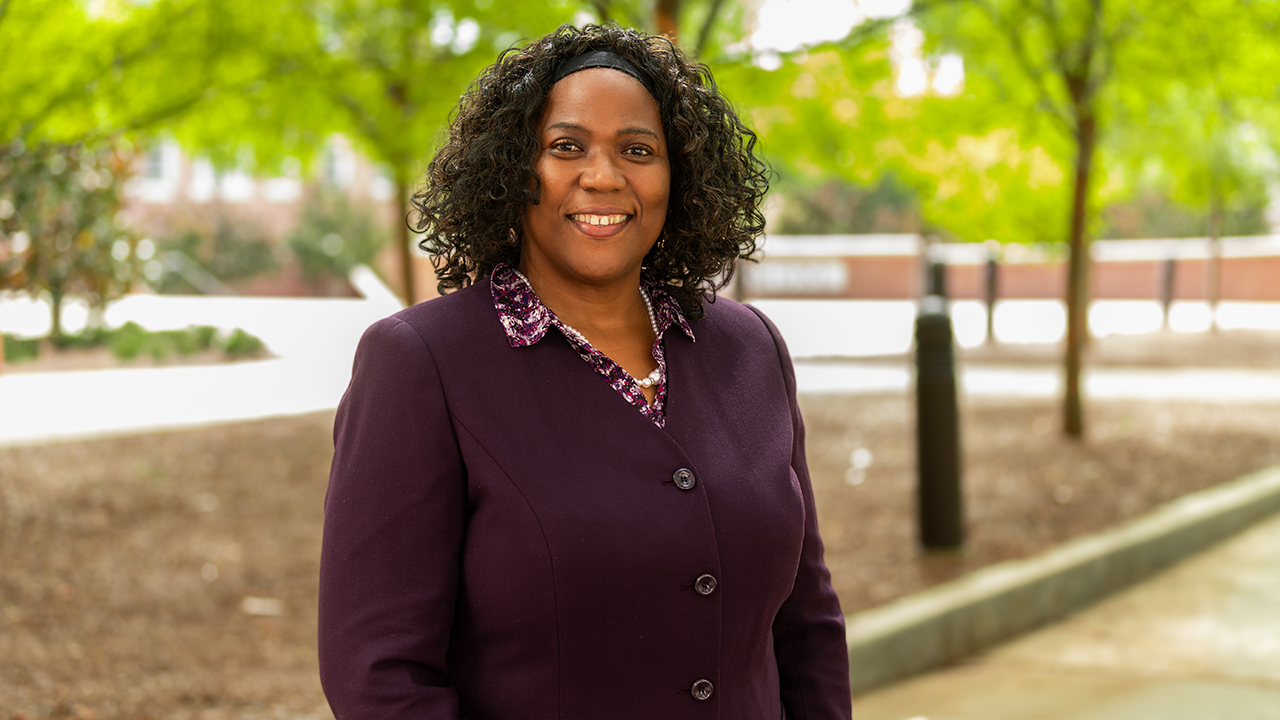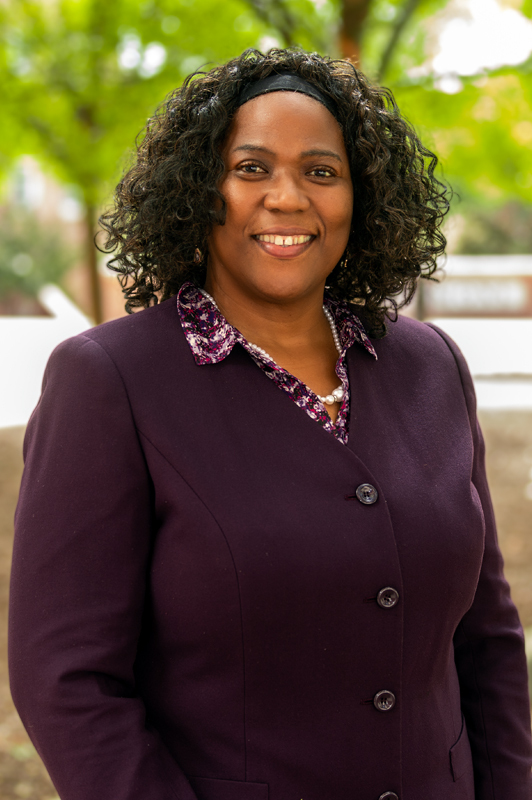Professor in CSSE spends summer equipping students, educators with evolving artificial intelligence toolkit
Published: Aug 1, 2025 9:30 AM
By Joe McAdory
Cheryl Seals didn’t just teach artificial intelligence (AI) this summer. She preached it.
As AI continues to transform every corner of society, Seals, the Charles Barkley Endowed Professor in the Department of Computer Science and Software Engineering and co-chair of the AI@AU ethics committee, has embraced her role as an AI evangelist to students and peers.
This summer, Seals delivered multiple AI-related workshops and presentations at Tuskegee University, Voorhees University in Denmark, South Carolina, and South Africa’s University of the Witwatersrand, as part of a growing effort to equip students, educators and entrepreneurs with the tools and confidence to meaningfully engage with AI.
“We want students to realize that we want them to be a part of building technology, not just consumers,” Seals said. “They need to be developers or creators of technology, because that’s who drives our future workforce. AI is no longer futuristic. It’s now, and everyone, no matter their background, deserves a seat at the table.”
On May 16, she led an international workshop in Johannesburg, South Africa, supported by the U.S. Consulate. This academic exchange program was a component of the Womxn Connect Exchange Program, founded by Tuskegee University Professor Rhonda Collier in collaboration with the University of the Witwatersrand in Johannesburg.
Alongside longtime collaborator Cheryl Swanier — an Auburn alumna and dean at Voorhees — Seals introduced students and startup entrepreneurs to the fundamentals of AI and the potential for technology to impact everyday life. This program was designed to cultivate and encourage students to have ideas that could benefit their fields and everyday living. The objective: attract talented women to STEM-related graduate programs.
On June 25–26, Seals and Swanier co-hosted the inaugural “Addressing AI in the 21st Century” workshop at Voorhees University. Educators from Voorhees attended the event where they were introduced to foundational AI, explored practical application of AI with hands-on exercises, discussed ethical challenges and examined ways to responsibly integrate emerging technologies into their classroom. Some of the hands-on exercises utilized generative AI tools to pedagogy refinement and extension.
Two days later, Seals and Swanier teamed again for the Working to Advance STEM Education for African Women Foundation’s “Introduction to Artificial Intelligence in Education” webinar. The virtual event, aimed at empowering teachers to bring AI into their classrooms, drew educators from across Africa and beyond. More than 200 participants pre-registered for this virtual workshop from six countries. Educators explored hands-on AI tools, discussed ethical challenges and examined ways to responsibly integrate emerging technologies into education.
These workshops, and others, are in support of AI@AU's activities to increase AI awareness and enthusiasm.
Seals emphasized the importance of equipping students with the skills needed for tomorrow, reinforcing her commitment to global AI education.
Funded by the National Science Foundation, Seals also presented to 40 secondary students at Tuskegee University in a program designed to bring mobile app development and cybersecurity experiences to Alabama’s Black Belt region. There, she introduced students to machine learning, generative AI tools and Auburn’s strengths in AI, cybersecurity and human-computer interaction.
“At the beginning of my workshops, I begin by asking people their comfort level with AI,” Seals said. “We hope that by the end they feel a little bit more comfortable with AI.
“AI is fast-paced and it’s affecting every part of life. If you have a cell phone, if you’ve driven in a car, it’s there. Whether you want to use it or not, AI is a part of everyday life… and it’s growing.”
That’s why Seals considers her outreach to be more than academic. Instead, she says it’s a calling.
“What I hope people think is that anyone can be a leader in this discipline if they’re willing to put in the time,” she said. “The first class I ever taught at Auburn, decades ago, was Artificial Intelligence: A Modern Approach. At the time, AI was still largely confined to academic labs and research circles. Now, it’s mainstream, and we need everyone from educators to entrepreneurs to understand and shape it.”
Media Contact: , jem0040@auburn.edu, 334.844.3447
Cheryl Seals is the Charles Barkley Endowed Professor in the Department of Computer Science and Software Engineering.


